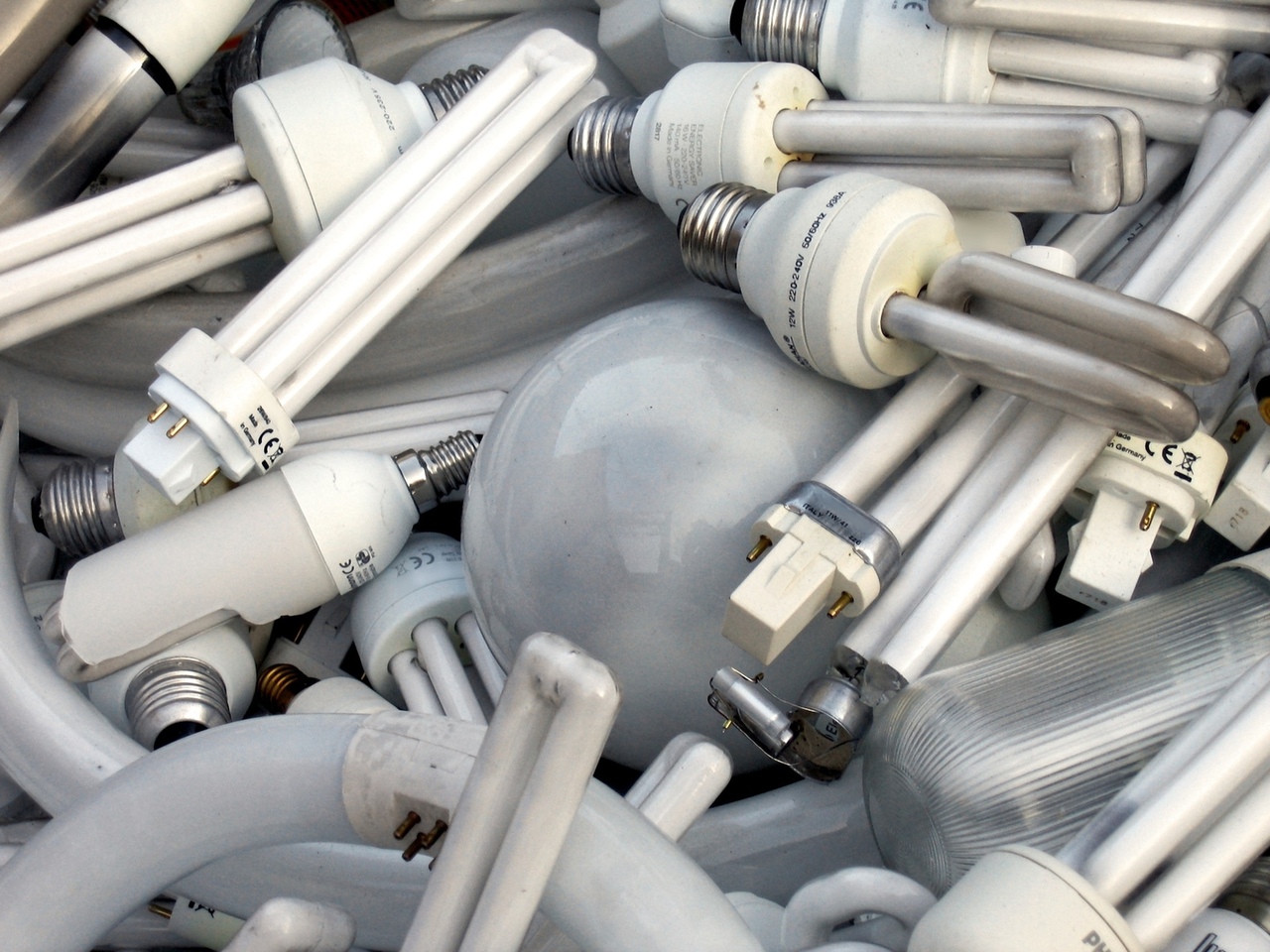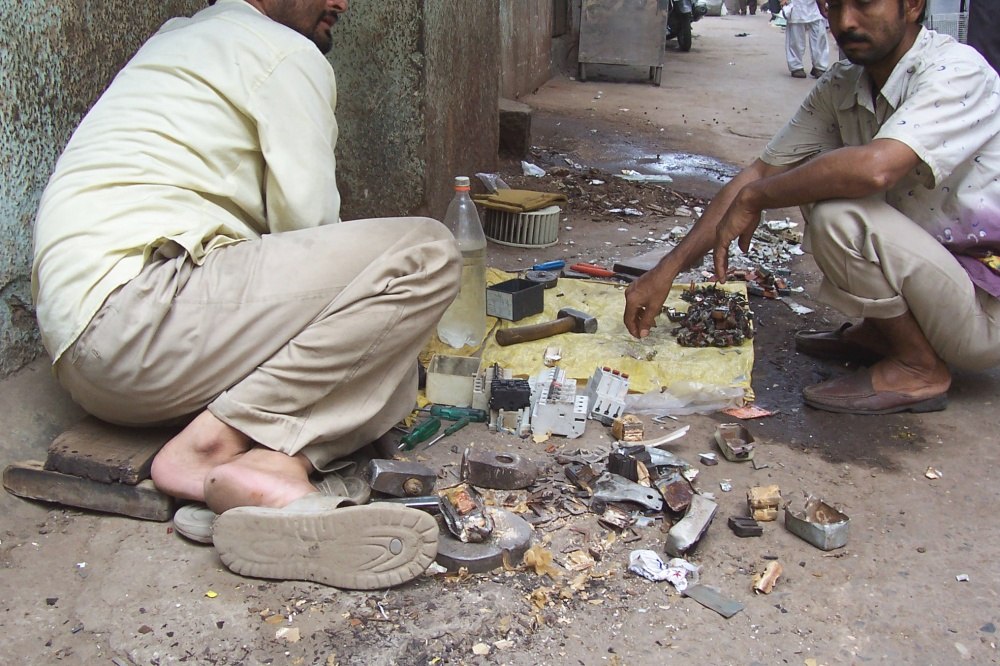
The Global E-Waste Monitor identifies e-waste as the fastest growing waste stream in the world. India generated 3.2 million metric tonnes of e-waste in 2019 alone, making it the third-largest contributor to e-waste in the world.
With the implementation of the E-Waste Management Rules in 2016, India has taken regulatory steps to address this issue. However, stakeholders across the spectrum are required to come together to take responsibility for improving e-waste management by enabling better collection and working towards responsible recycling.
E-waste streams contain many valuable and critical materials, like gold, copper, and iron and rare earths-making it a rich urban source of elements. Recovering these materials can bolster a secondary materials market and reduce reliance on virgin material sources. Currently, just one-fourth of the electronics produced in India is recycled domestically. Setting up a circular economy will help shift the focus from the linear “take, make and dispose” approach to include recovery and reutilization for production. A circular economy that creates economies of scale for recycling and reuse is only possible if the formal recycling and informal collection sector are brought together in an effective framework.
On 14 October, India joined over 40 other countries in celebrating International E-Waste Day. Karo Sambhav, the first Producer Responsibility Organization from Asia to join WEEE Forum, in partnership with the US India Business Council (USIBC), jointly hosted a virtual conference on the theme “A circular economy in E-Waste for an Atmanirbhar Bharat”.
The conference facilitated a dialogue on promoting a circular economy and practices, development of the secondary materials market, and opportunities for future collaborations on circularity.
Swacch Bharat Mission can enable the extraction of resources from e-waste for production cycles which can promote reuse of generated resources under the Make in India mission. This will lead to perpetual growth and an ‘Atmanirbhar Bharat’
Mr Ashish Tiwari, Member Secretary, Uttar Pradesh Pollution Control Board
Mr Pranshu Singhal, Founder, Karo Sambhav began the session with an overview of e-waste collection and accounting in India. While noting that there has been significant progress since 2017, with the number of producers with EPR authorization on the rise and formalization of informal waste collectors, a lot more remains to be done. “There is little collection of e-waste from bulk consumers while individual consumers remain unmotivated to dispose of e-waste without high incentives. There is no recognition of informal collectors, no access to auctioning platforms, lack of cost-analyses on procurement, recycling, logistics, and administrative costs, leading to a race to the bottom. E-waste collection largely remains on paper as companies avoid the expenses to dispose of e-waste responsibly.”
Mr. Gary Litman, VP, Global Initiatives, US Chamber of Commerce also touched upon the importance of the implementation of policy at various levels so that circular practices can emerge and change the e-waste space today. He said, ”The global response to the COVID-19 pandemic has resulted in a massive shift to remote work technologies, which has kept us safe and productive; however, we need to think now about how to manage these technologies once they reach the end of their usable life. India will be well positioned to lead this conversation on electronic commodities and circular economy when it takes over the G20 chair in 2022.”

Dr Sandip Chatterjee – Director, Ministry of Electronics and Information Technology shared that India is the third-largest E-waste producer in the world, contributing about 6 percent to e-waste worldwide. “90-95 percent of e-waste recycling takes place in the informal sector, using primitive methods. Ten cities generate 70 per cent of the total e-waste with Mumbai, Delhi and Bengaluru being the biggest generators. We are now focusing on developing affordable e-waste recycling technology including pulverization, physical separation, chemical leaching etc, technology transfer, stakeholder awareness, capacity building, and infrastructure development.”
As a part of their respective keynote address, both Mr Ashok Kheterpal, Chairman, Haryana Pollution Control Board, and Dr. Ashok Kumar Ghosh, Chairman, Bihar Pollution Control Board emphasized the importance of collaboration between producers and government bodies to properly handle e-waste, as well as adherence and compliance to the regulatory frameworks.
Mr Ashish Tiwari, Member Secretary, Uttar Pradesh Pollution Control Board highlighted that 95 per cent of e-waste in India is recycled in the informal sector even as registered recyclers remain non-functional. “E-waste is channelized to illegal processors owing to low processing costs. New systems are required to track this e-waste. Initiatives like Swacch Bharat Mission, Digital India, and Atmanirbhar Bharat can provide a useful platform to promote better e-waste management in India. SBM can enable the extraction of resources from e-waste for production cycles which can promote reuse of generated resources under the Make in India mission. This will lead to perpetual growth and an ‘Atmanirbhar Bharat’. Integrating municipalities to support the collection of e-waste is essential.”
The evening saw an interesting line-up of panelists from the government, state pollution control agencies, the private sector, multilateral development organizations, and international environmental agencies.
A full recording of the event is available here.
Picture Credit: Freeimages.com



